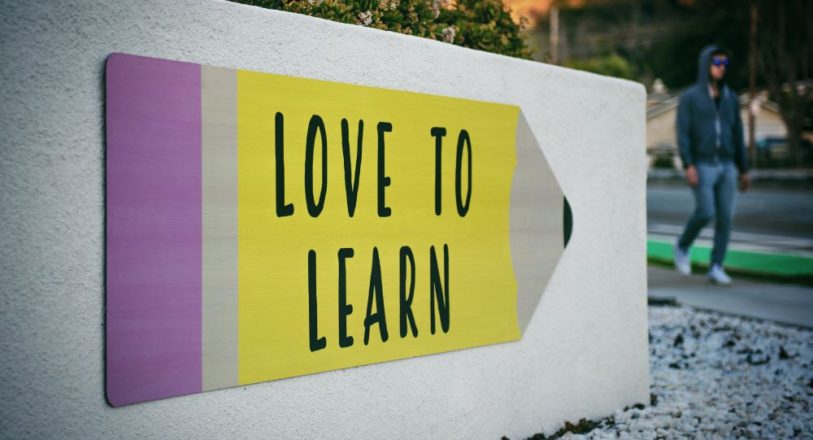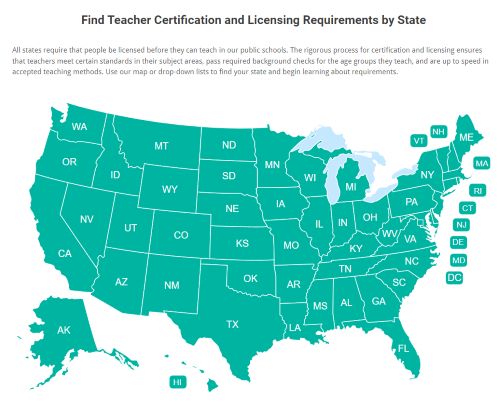How to Become a History Teacher: Salary, Career Outlook and Online Degree Programs (2025)

CONTENTS
- Step-by-Step: How to Become a History Teacher
- What level of history should I teach?
- Salary & Job Outlook – History Teachers
- States that hire the most History Teachers
- Top paying states for History Teachers
- Admission Requirements for online History and Education degree programs
- Best online degree programs to become a History Teacher
- Jobs available to History Teachers outside of teaching
- Professional Associations for History Teachers
The ideal history teacher is someone who loves to learn about and discuss how historical events of the past have determined and influenced our present conditions. You should become a history teacher if you have a passion for studying history and enjoy teaching it to others. A career as a history teacher is also a great option for someone who likes variety, as there are many different historical genres you can teach.
You will learn on your journey to become a history teacher that historical genres are characterized by time period, geographic location and the specific population being studied. When you become a history teacher, your choice of historical genre spans the entire time and space of recorded human history. From ancient Chinese civilization to the era of the roaring 20’s in the United States. You will certainly come across a genre that interests you the most on your journey to become a history teacher.
Teaching History is also one of the most rewarding professions because teachers are generally revered in their communities and admired by their students. Almost everyone can recall that one special teacher who inspired them to achieve their life’s goals. When you become a history teacher you will be both a source of historical knowledge and inspiration for your students as well.
So exactly how does one become a history teacher? Let’s take a look at all the steps you need to take to become a history teacher in the next section.
Step-by-Step: How to Become a History Teacher
- Determine the state-specific requirements for teaching licensure in the state you intend to teach
- Obtain a bachelor’s degree from an accredited institution
- Fulfill your state’s requirements for teacher licensure
- Apply for teacher certification
- Click here for your state’s teaching licensure requirements
Step 1: Determine the state-specific requirements for teaching licensure in the state you intend to teach
Every state has different requirements to become a licensed history teacher. It’s important to determine what those requirements are as they will guide you in choosing the degree programs you apply to. Find your state’s requirements here.
After you determine the state you intend to teach in, find answers to the following questions about that state’s teaching licensure requirements:
- What educational requirements do you need to complete? In most states, a bachelor’s degree is the highest level of education you need to become a history teacher. However, some states may require less or more depending on the level you want to teach.
- Do I need to major in history to become a history teacher? Most states are flexible when it comes to choosing an undergraduate major, but you may need to fulfill a certain number of credit hours of history coursework to become a history teacher.
- What national and/or state licensing exams do you need to pass to become a history teacher? The Praxis Series is the most commonly used exam to obtain a teaching certification but not every state requires it. You can find your state’s Praxis requirements here.
- What additional prerequisites, if any, must you satisfy for licensure as a history teacher?
Step 2: Obtain a bachelor’s degree from an accredited institution to become a history teacher
A bachelor’s degree is the lowest level of education you need to become a history teacher at the elementary and secondary level. In most states, you need a master’s or doctorate degree to teach history at the undergraduate and graduate level. Again, make sure you determine your state’s specific requirements as you map out your teaching career plans. This will help you choose the best school and degree program for your professional goals.
How to choose a school:
- Check the accreditation status of every online degree program you are interested in applying to. We make this step easier for you, as every online degree program listed later in this article is accredited.
- Confirm that your desired accredited online degree program satisfies your state’s licensing requirements for history teachers.
- Check for any pre-enrollment requirements the school may have. For example, some degree programs require students to pass the Praxis exam prior to acceptance.
- Explore the school’s available majors and minors. Is a dual major or accelerated Master’s degree an option? In some instances, you may be able to cut the time of your education by pursuing an undergraduate history major and Master of Education at the same time.
Tip: A popular path for a secondary history teacher is to obtain a bachelor’s degree in history, and then pursue a Master of Education in Curriculum and Instruction in order to fulfill the requisite teaching components for licensure as a history teacher.
Step 3: Fulfill your state’s requirements for teacher licensure
In addition to passing the Praxis exam, some states require you to complete a certain number of hours as a student teacher. You may also need to take a basic skills assessment. For example, Pennsylvania requires prospective teachers to pass the Pre-service Academic Performance Assessment (PAPA). You can determine what your state’s certification and licensing requirements are here.
Step 4: Apply for teacher certification
After completing all of your state’s licensing requirements, your final step is to apply for your teacher certification. This is a fairly straightforward process as most states have a central online application system where you submit proof of your credentials for review. Upon successful review of your submitted credentials you will officially become a licensed history teacher. You will be qualified to work as a history teacher in most schools within the state where you received your license.

What Level of History Should I Teach?
One of the best aspects of becoming a history teacher is the option to teach at any level of education, from elementary school to graduate studies. The requirements to become a history teacher will vary depending on the level of education you intend to teach. For example, undergraduate history professors often need a master’s or doctorate degree. You can use the guide below to determine what level of history is best suited for you.
Elementary School
Most schools in the U.S. start teaching history at the 4th or 5th grade level. At this level, history is usually taught within a broad category of study called “Social Studies”. This is when students are first introduced to the basic concept of history, historical events, geography and global populations. A career as an elementary school history teacher or social studies teacher is a great option if you enjoy teaching young children. It is also ideal for someone who wants to teach history from a broad perspective rather than a specific period of time or genre.
Middle School
Middle school history curriculum usually encompasses general American History and World History. At this level, history is commonly taught as a timeline in order to build a foundation of historical knowledge. A career as a middle school history teacher is ideal for someone who wants to cover a variety of major historical events and figures rather than focus on one specific time period.
High School
At the high school level, history teachers have the opportunity to cover both general American and World History as well as specific historical genres. For example, many high schools offer courses in European History, African American History and U.S. Government. You should consider a career as a high school history teacher if you want the option to teach both general history and courses about specific populations and periods of time. As a high school history teacher, you will also have the opportunity to teach Advanced Placement (AP) or International Baccalaureate (IB) classes to advanced students. You should also consider a career as a high school teacher if you enjoy giving advice about applying to college as most of your students will be in need of college application guidance.
Community College or University Professor
You should become a Community College or University Professor if you want to teach young adults and dive deep into specific historical genres or events. For example, some colleges have courses dedicated specifically to Medieval Times, Women’s History or the Civil War. A career as a history professor also opens the door for you to create and teach seminar courses on specific aspects and events of history in which you have expertise. You will most likely need at least a master’s degree, if not a doctorate, to become a University Professor. But some Community Colleges only require their professors to hold a bachelor’s degree. You should consider a career as a community college history professor If you want to teach specific historical genres to older students without adding years to your educational path.

Salary and Job Outlook for History Teachers
The salary and job outlook for history teachers varies depending on the level of education.
According to the Bureau of Labor Statistics (BLS), Elementary school history teachers earned a median salary of $60,940 in 2020. Overall employment for Elementary school history teachers is expected to grow at 7% through 2030, which is about as fast as the average for all occupations.
The median pay for Middle school history teachers was $60,810 per year in 2020, with the highest 10 percent earning more than $98,840 per year. Employment for Middle school history teachers is projected to grow at 7% through 2030.
High School history teachers earned a median salary of $62,870 in 2020, with the highest 10 percent earning more than $102,130. Employment of high school history teachers is projected to grow at 8% through 2030.
The Bureau of Labor Statistics combines the salary data for community and university professors into one category known as Postsecondary teachers. The median salary for postsecondary history teachers was $76,890 in 2020. History professors are typically paid more at universities compared to community college history professors. Employment for postsecondary history teachers is projected to grow at 8% through 2030, which translates into 1,900 new job openings each year.
Overall, the job outlook for history teachers at any level is promising. In addition to a higher than average salary, a career as a history teacher comes with the added bonuses of health coverage, a 401K retirement account, tenure and paid summers off.
What States Hire the Most History Teachers?
Job opportunities for history teachers vary based on the level of education and the geographic area.
In 2020, the states with the highest concentration of postsecondary history teacher jobs (employment per 1000 jobs) were: Rhode Island (.44), Hawaii (.31), Virginia (.28), Massachusetts (.26), and New York (.26).
What States Pay History Teachers the Highest Salary?
In 2020, the top paying states for postsecondary history teachers (annual mean salary) were: California ($118,290), Rhode Island ($112,740), Massachusetts ($107,780), District of Columbia ($107,150), and New York ($100,800)
Admission Requirements for Online History & Education Degree Programs
Admission requirements for online history and education degree programs vary depending on the prestige and competitiveness of the school.
In general, most schools require applicants to have a solid high school GPA (3.0 or higher) and submit SAT/ACT scores, recommendation letters and a personal statement. The higher your GPA and Standardized test scores, the better your chances of receiving grants and scholarships to fund your education.
International applicants will also need to prove proficiency in English by submitting their scores from any of the following exams: Test of English as a Foreign Language (TOEFL), International English Language Testing System (IELTS), American Council on the Teaching of Foreign Language (ACTFL), or Pearson Test of English Academic (PTEA).
Applicants to Master of Education (M.Ed.) programs need a bachelor’s degree from an accredited institution, GRE/GMAT scores, a resume, recommendation letters, a personal statement and at least one year of teaching experience.

Affodable Online Degree Programs to Become a History Teacher
1. Grand Canyon University
Bachelor of Arts in History for Secondary Education
Grand Canyon University (GCU) offers a B.A. in History Education that is 100% online with asynchronous classes so you can study anytime, anywhere. The university’s history education degree is regionally accredited and approved by the Arizona State Board of Education. Upon graduating with this degree, students obtain initial teacher licensure. To become fully licensed as a teacher, graduates must complete the teacher certification requirements for the state in which they intend to teach.
Grand Canyon University’s history education degree program consists of 120 credit hours and is designed to teach students how to deliver history education in a formal classroom setting. Students have the option to transfer up to 90 credits of coursework from other accredited institutions. The cost per credit hour for this degree program is $447. However, the university offers a variety of scholarships and grants to help lower the cost of tuition. To gain admission to GCU, students typically need a high school GPA of 2.5 or higher and an SAT score above 1000 or an ACT score above 19. Applicants with a GPA of 3.0 or higher are exempt from the SAT/ACT requirement.
2. Regent University
Bachelor of Arts in History
Regent University’s online bachelor degree programs have been ranked #1 in Virginia by the U.S. News and World Report for 9 consecutive years. The university is also nationally recognized for its online degree program and has numerous accreditations, including by the Southern Association of Colleges and Schools Commission on Colleges.
Regent University offers a B.A. in History degree that is 100% online. The program consists of 120 credit hours of coursework which most full-time students complete in four years. Students can also enroll in the program on a part-time basis and take up to eight years to earn their degree. Upon graduating, students must fulfill the teacher licensure and certification requirements for the state in which they intend to teach. The cost of tuition for online students is $395 per credit hour plus $650 per semester for university service fees.
3. King University
Bachelor of Science in History
King University is accredited by the Southern Association of Colleges and Schools Commission on Colleges and is ranked as one of the 15 best online Bachelor’s in History programs by Bachelors Degree Center. The university’s B.A. in History degree is targeted toward individuals who want to gain the academic background necessary to satisfy certification requirements for teaching history to grades 6-12. The program’s coursework is delivered in a 100% online asynchronous format so that students can attend class when and where they want. The program consists of 124 credit hours of coursework and is typically completed in 4 years by full-time students.
4. Southern New Hampshire University
Bachelor of Arts in History
Southern New Hampshire University’s B.A. in History degree program is 100% online and delivered in an asynchronous format. The program consists of 120 credit hours that can be completed in four years by full-time enrollees. Students have the option to transfer up to 90 credits of coursework from other accredited institutions. This program is ideal for individuals who want a comprehensive history education with a focus on the connections between ancient civilizations and modern societies. At the end of the program, students complete a final capstone research seminar.
The cost per credit hour for this degree program is $320. The university offers a discounted tuition fee of $225 for U.S. Service members and the spouses of those on active duty. To gain admission to Southern New Hampshire University, students need a high school GPA of 2.2 or higher. There is no application fee and students are not required to submit standardized test scores.
5. Bellevue University
Bachelor of Science in History
Bellevue University offers a B.S. in History that is 100% online with asynchronous classes so you can study at the most convenient place and time for your schedule. The university’s history education degree is accredited by The Higher Learning Commission and approved by the Nebraska State Board of Education. The program is designed to prepare future history teachers for Secondary Education Teaching Endorsement in Nebraska. To become fully licensed as a teacher, graduates must complete the teacher certification requirements for the state in which they intend to teach.
Bellevue University’s history degree program consists of 127 credit hours and is intended to attract students who want a foundational degree in the study of the history of Western Civilizations. Students have the option to transfer up to 60 credits of coursework from other accredited institutions. The cost per credit hour for this degree program is $430. There is no minimum GPA required for admission and students are not required to submit standardized test scores.
Jobs Available to History Teachers Outside of Teaching
- Public or private school administrator
- Museum educator
- Museum archivist
- Private tutor
- Standardized test developer
- Education consultant
- History textbook writer
- Content strategist
- Documentary writer/editor
- Museum curator
- Historian researcher
- Historian analyst
- Historian archivist
- Pollster
- Journalism commentator
- State Department analyst
- Writer or editor for History Journals
- Political Writer/Journalist
- Historical Preservationist
- Governmental Career
Professional Associations for History Teachers
- American Federation of Teachers: – “The American Federation of Teachers is a union of professionals that champions fairness; democracy; economic opportunity; and high-quality public education, healthcare and public services for our students, their families and our communities.”
- National Education Association: “ The National Education Association (NEA), the nation’s largest professional employee organization, is committed to advancing the cause of public education. NEA’s 3 million members work at every level of education—from pre-school to university graduate programs. NEA has affiliate organizations in every state and in more than 14,000 communities across the United States.”
- Council for the Accreditation of Educator Preparation: “CAEP advances equity and excellence in educator preparation through evidence-based accreditation that assures quality and supports continuous improvement to strengthen P-12 student learning.”
- National Council for History Education: “The National Council for History Education provides professional and intellectual leadership to foster an engaged community committed to the teaching, learning, and appreciation of diverse histories. Through historical inquiry, NCHE empowers learners to research and interpret the past.”
- New England History Teachers Association: “Founded in 1897, the NEHTA is the nation’s oldest association of history and social studies teachers. Through…conferences, publications, and awards, the NEHTA provides teachers, students and academics opportunities to engage in meaningful conversations about the teaching and learning of history and its related disciplines.”
- American Historical Association: “The American Historical Association is the largest professional organization serving historians in all fields and all professions. The AHA is a trusted voice advocating for history education, the professional work of historians, and the critical role of historical thinking in public life.”
Take the Next Step!
Do you foresee a degree in history in your future?



